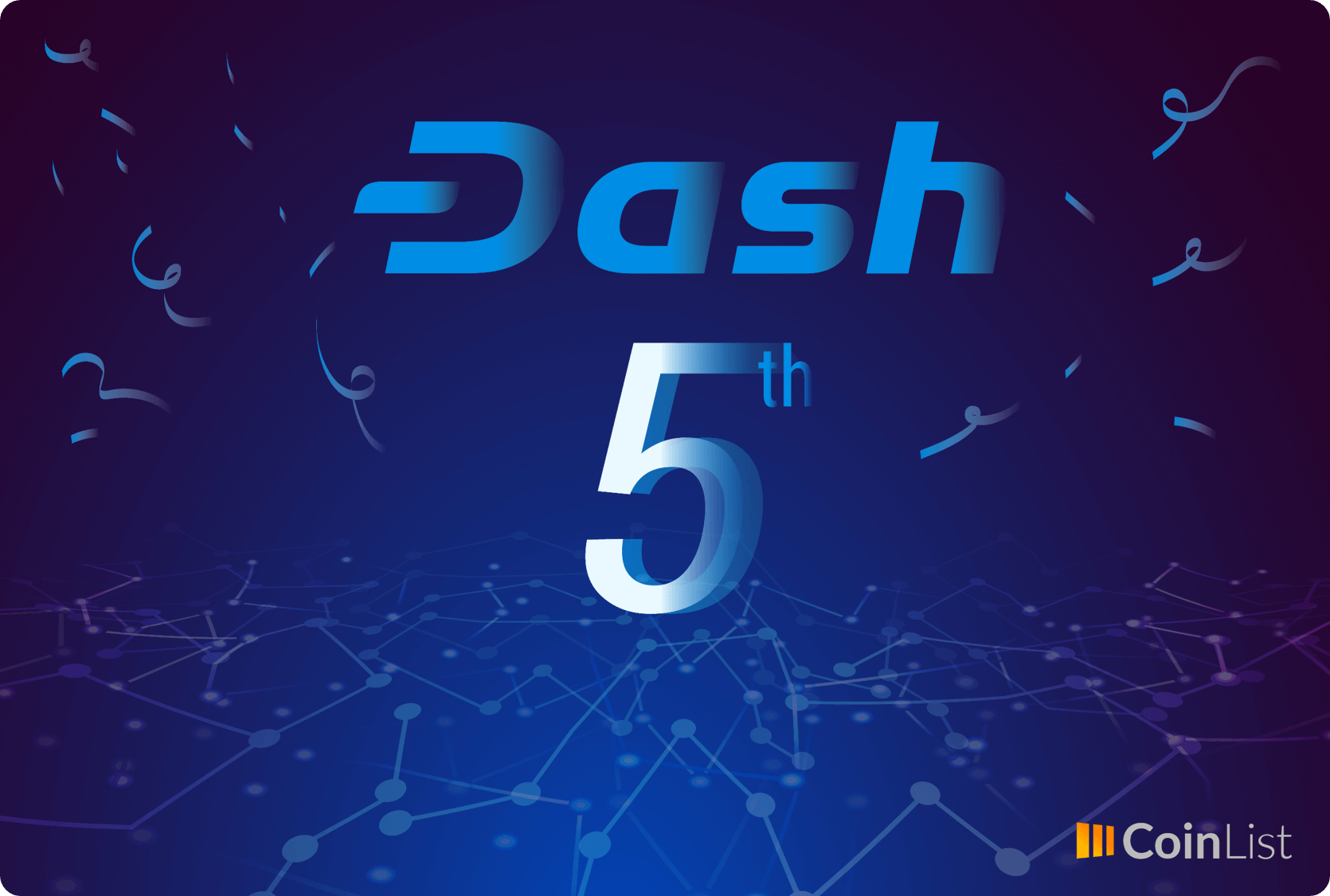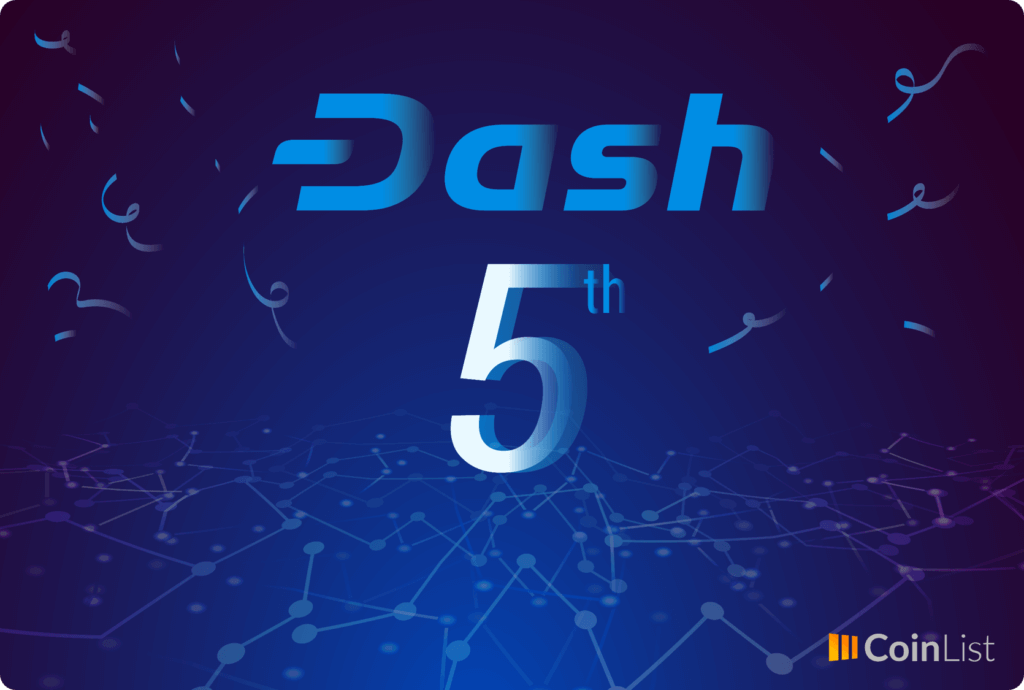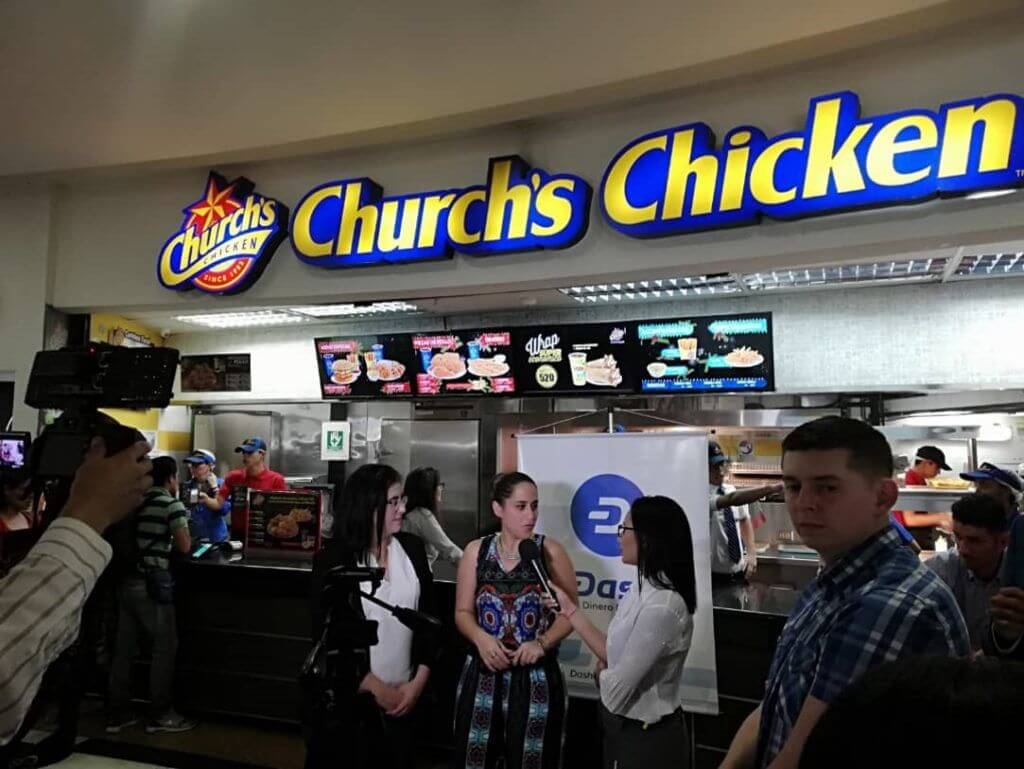
On January 18th Dash turns 5 years old and it has been a rollercoaster of a journey. Dash’s ‘mission is to make digital cash easy to use and access for all users, even those who aren’t technologically savvy. Anybody will be able to set up an account on the blockchain’.
Dash is as peer-to-peer decentralized electronic cash. It intends to be as common as real cash which we use in our respective countries such as USD/GBP/EUR/INR or CNY. It is built up in the same framework as Bitcoin’s core code with the addition of new features (such as privacy and quick transactions). The code is open-source and has its own blockchain, wallet infrastructure, and community. Although, unlike BTC, its transaction fee is negligible which is a massive advantage.
Developer Evan Duffield started Dash on the 18th January 2014 and it was originally released as XCoin (XCO). In February 2014, there was a rebrand to “Darkcoin”. Then subsequently on 25 March 2015, Darkcoin was finally rebranded as “Dash”. Evan Duffield saw Bitcoin in 2010 and he loved the concept and technology behind. However, he soon realized that Bitcoin was not private or fast enough worked on a solution to these problems. It was said he had many ideas on how to make Bitcoin anonymous and felt that Bitcoin’s core developers wouldn’t allow him to do so, as the core’s code would need to be adapted for this. So he went about producing his own coin.
Dash has a total supply of 18 million coins and currently, the circulating supply of Dash is 7.4 million, and it will reach 18 million in the year 2300. The coin has a variable block reward which slows down at a rate of 7.1 % each year.
What does the future have in store for Dash?

Dash is currently number 15 on the market cap list and is a very credible coin. Its speed and ease of use are a major benefit, but to overthrow Bitcoin is no easy job. According to CCN there is one single miner that owns more than 50% of all Dash blocks. Dash has a total of almost 1,900 Terrhashes per second at and NiceHash is responsible for more than 1,000 TH/s across over 25,000 miners. This means it is possible that someone could perform a 51%, similar to the recent hack seen in Ethereum Classic.
Why to use Dash over other crypto coins?
To counteract Dash is working on a solution called a ‘Chainlock’. This is a protection mechanism that would prevent such an attack. With ChainLocks, miners are incentivized to publish every block, even if they in have enough hash power to overrule every other miner. The failure to disclose creates substantial risks for a malicious miner. Any secret chain would be immediately invalidated if another honest miner publishes a valid block that receives a CLSIG before the secret chain is revealed. So, in essence, the company are looking to mitigate risk (of a 51% attack) by creating a publishing system for the biggest miners.
One issue Dash may face is its commitment to privacy. It is said that some exchanges are under pressure from central organisations in their respective nations to stop money laundering and illicit usage of coins. Dash is built on these “privacy foundations” and it could mean delisting from certain exchanges. Although this is not the reason for Dash some opportunistic users may use it for this reason. Dash wants to be non-centralised and fair alternative to fiat currencies.
On the plus side, Dash has stated hundreds of local retail outlets including American fast-food franchise Subway and fashion giants Calvin Klein, are accepting Dash payments. Forbes also reported that KFC is in deep discussions with Dash over their Venezuelan outlets accepting the cryptocurrency. But, why is Dash so important in that country?
Venezuela: a use-case for Dash adoption
The South-American country proves how a cryptocurrency is able to become massive and approach real problems. Venezuela is facing one of their biggest crisis, with a hyperinflationary scenario that seems to get worse as the times goes by. In 2018, inflation plunged the Bolivar (its local currency). According to the FMI, inflation was about 1,350,000 % in 2018 alone. Given the situation, local citizens decided to protect their money by converting it into commodities, other currencies and—most recently—crypto. But Bitcoin didn’t win the race this time, Dash is the favourite of the Venezuelan people.

There’s a reason for that, though. Local entrepreneurs like Alejandro Echeverría realised that solid ecosystems are necessary for further adoption of crypto. Echeverría founded Dash Text and Dash Help. Dash Text allows people to get crypto through SMS, a very convenient alternative since Internet connection in Venezuela is not quite reliable. Likewise, Echeverría thinks is crucial to have a help desk for people to get informed and dive into crypto. In an exclusive interview with our Spanish team, he revealed why Dash has grown so fast in Venezuela.
Echeverría: “we’ve built the ecosystem and merchants are getting more confident”
According to his data, more than 2500 stores are using Dash in Venezuela. The success is based on the solutions provided and the fact that “people like to feel they have a solid infrastructure” behind a cryptocurrency. Besides the local merchants, Echeverría has signed up bigger players like Subway, Papa John’s y Church’s Chicken. In his opinion, information is one of the keys to “achieve the goal of becoming the money that the people actually use”. And he seems to be right, Venezuela is number 1 in Dash adoption worldwide. When it comes to the future, it seems to be bright in his perspective:
“At the development layer, Evolution should be released this year. This upgrade will allow people to use Dash easily, without the need of an alphanumeric address, but through users instead. Decentralised applications will be also within this new ecosystem.”
Cointext.com aims to provide useful information for more than 50 altcoins, including history, background, price quotations and how-to-guides. As the home of altcoins it aims to educate those that are new to the crypto industry and publishes news and analysis for those who want to make more out of their investments. You can find more information on Dash, including explanations on how you can trade/buy Dash as well as a whole host of other cryptocurrencies.

